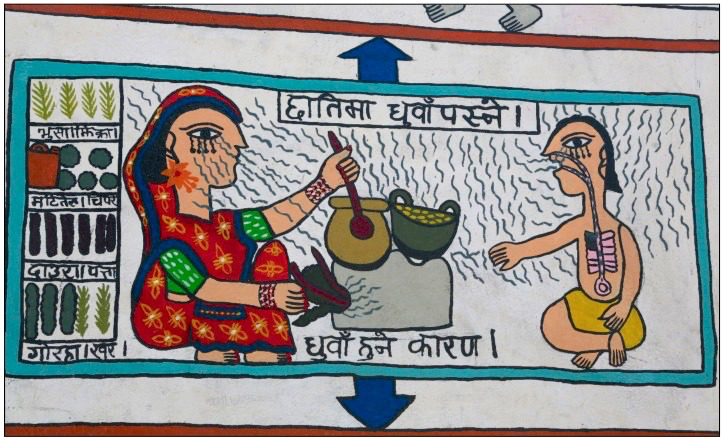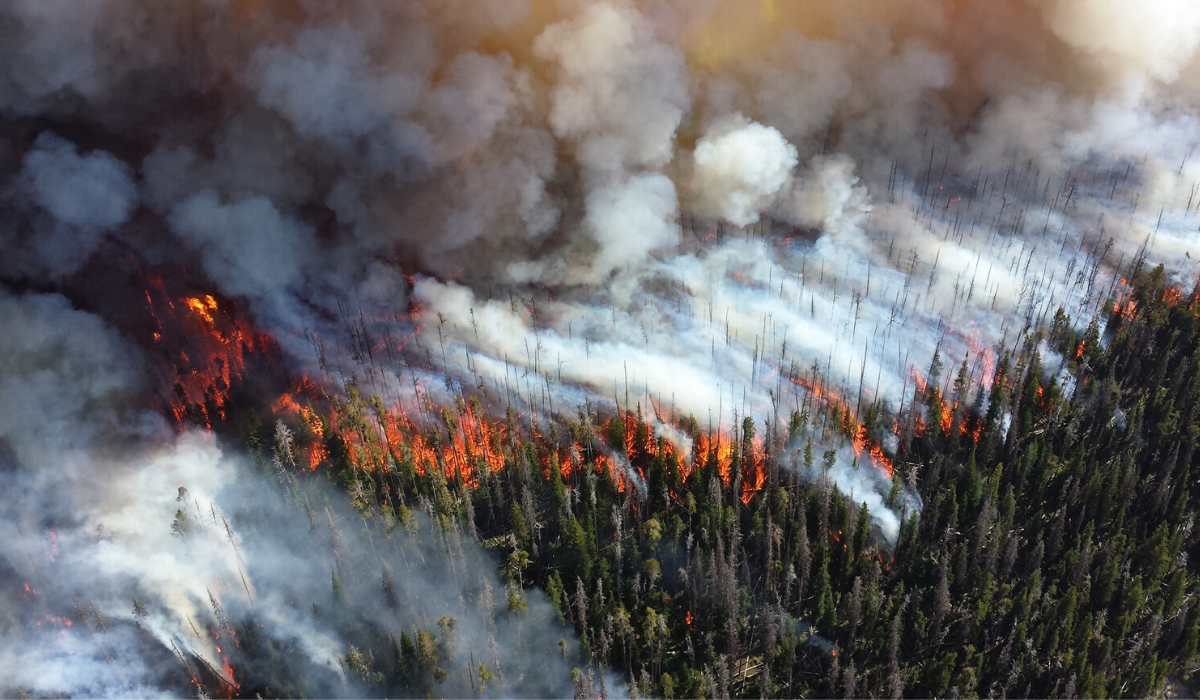


Household air pollution before the installation of a clean cookstove.
Same household after the installation of a clean cookstove.
The World Health Organization issued a pollution fatalities report on March 24, 2014 stating that one in eight deaths worldwide can be attributed to breathing tainted air—making it the world’s largest environmental health risk, confirming what we already knew, and dramatically increasing the estimate of the number of deaths caused annually by air pollution, in general, and Household Air Pollution (HAP) specifically.
To help combat this global epidemic the Taos Milagro Rotary Club has announced a new Global Collaborative Outreach Partnership with the Himalayan Stove Project.
The club is spearheading a program with the HSP involving Rotary Clubs and Rotarians worldwide to join in the efforts of the Himalayan Stove Project to help solve this problem in Nepal.
The Himalayan Stove Project, a volunteer-run, publically financed, humanitarian organization, donates and distributes free, clean-burning, fuel-efficient cookstoves to help the people of the High Himalayas reduce rampant fuel consumption and deadly Household Air Pollution.
With the support of key corporate sponsors such as adidas, Eddie Bauer, Kahtoola, MSR, 1% for the Planet, and Rotary, the Himalayan Stove Project has installed more than 3,000 clean-burning Envirofit® stoves in impoverished homes across remote mountainous regions of Nepal.
The Taos Milagro Rotary Club, which has supported the Himalayan Stove Project since its inception in 2010, is now spearheading a global outreach effort for the organization in order to educate and mobilize Rotary Clubs and Rotarians across the United States as well as in England, New Zealand, Australia and Nepal, and worldwide.
“Recent reports provide overwhelming evidence that the toxic indoor air pollution and environmental damage caused by rudimentary cookstoves in the Himalayas are issues of urgent, global import,” says Jay Wood, president of Taos Milagro Rotary Club, referring to the World Health Organization’s pollution fatalities report as well as the recent World Bank report on climate change. “With the help of Rotarians worldwide, and the thousands of Rotary Clubs around the world, we hope to bring attention and assistance to the Himalayan Stove Project’s multi-year mission, which has the power to save millions of lives and dramatically slow climate change.
Wood reports that since the Global Collaborative Partnership was established in February 2014, it has already organized clubs from New Mexico to Wisconsin and from New Zealand to Nepal to deliver and install 245 stoves to remote villages in the Himalayas by summer 2014.
This global network contribution constitutes a major part of the more than 3,000 stoves that the Himalayan Stove Project has already installed.
Woods and Himalayan Stove Project Founder and Taos Rotarian George Basch anticipate that stove installations will increase dramatically as the Global Collaborative Partnership gains worldwide awareness and traction.
“Household Air Pollution, or the ‘silent killer,’ is responsible for more than four million global deaths each year– more even than the mortalities caused by malaria, HIV/AIDS and tuberculosis combined,” says Basch, echoing Actress Julia Roberts , the Global Ambassador for the Global Alliance for Clean Cookstoves, who says, “I strongly believe that cooking shouldn’t kill. Don’t you?” “I am thrilled to see Rotary’s international community of humanitarians take up the flag to help end this epidemic and protect the people and environmentally significant ecosystem of the Himalayas.”
Article by: George Basch



Thank you for contacting Himalayan Stove Project. You have been successfully subscribed to our newsletter!